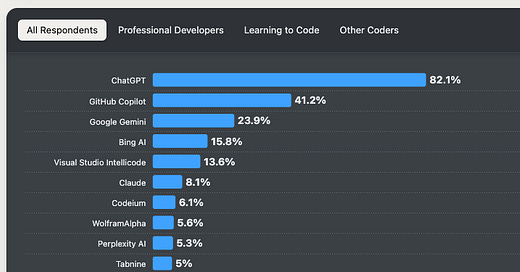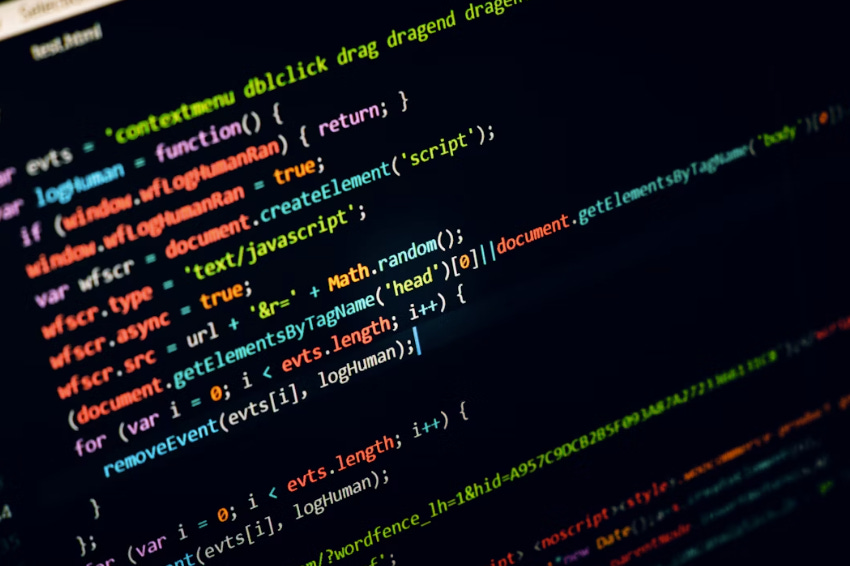Software is eating its makers
Welcome to Cautious Optimism, a newsletter on tech, business, and power. Modestly upbeat.
📈 Trending Up: Humanoid robotics startups … rapid space manufacture … AI sales startups … being disappointed … climate impacts on food production …
📉 Trending Down: Polymarket accuracy … Farcaster … Apple Podcasts (BG) … spot Ethereum ETF inflows …
Software is eating its makers
As we all await AI to revolutionize how we wash our teeth and floss our hair, artificial intelligence software products are having a real impact in the market — on the same group of folks who made them.
The pace at which tools built to help developers code are being adopted is pretty darn incredible. Asked which “AI-powered search and developer tools” developers used “regularly over the past year, and which do you want to work with over the next year,” Stack Overflow’s 2024 survey respondents turned in the following data:
The list — pulled from over 46,000 responses — implies that Microsoft is crushing the game today. It owns a chunk of ChatGPT’s parent company, while GitHub, Bing, and Visual Studio are also Microsoft products. Google ranks highly, as do startups Anthropic (Claude) and Perplexity.
For our purposes today, it matters less which providers of AI-powered coding tools are winning. Instead, we care that the answer to the question of what portion of developers today are using AI assistants to sling code? To which the answer seems to be lots of them. (A16z just backed Cursor, which in its own words is “designed to integrate AI into developer workflows.”)
Corporations are taking note. Amazon CEO Andy Jassy recently took to X (formerly Twitter) to brag about Amazon Q, his company’s “GenAI assistant for software development.” Discussing the chore of updating “foundational software,” Jassy said that Amazon Q usage was saving oodles of developer time:
The average time to upgrade an application to Java 17 plummeted from what’s typically 50 developer-days to just a few hours. We estimate this has saved us the equivalent of 4,500 developer-years of work (yes, that number is crazy but, real).[…]
[O]ur developers shipped 79% of the auto-generated code reviews without any additional changes.
Technology is very good at deleting rote work. Water wheels to replace buckets, bicycles to replace walking, industrial machines to automate repetitive labor, you know the story. Here, developers are seeing the amount of boring work that they complete reduced thanks to intelligent software.
If you combine the popularity of AI assistants amongst developers and the labor (cost) savings that companies can wring from their use, we’re faced with a picture in which software builders are replacing themselves with their own output. For now, partially. In the future, perhaps more completely?
The labor angle
If you read software developer forums, especially those aimed at folks looking for a new job, you’ll often read stories of confusion and desperation. Confusion at how the job market for software developers changed so quickly, and desperation at how to get back into a gig.
The developers in question are not whiners. Things really have changed. Here’s a FRED chart of the number of software development job postings on Indeed over time:




